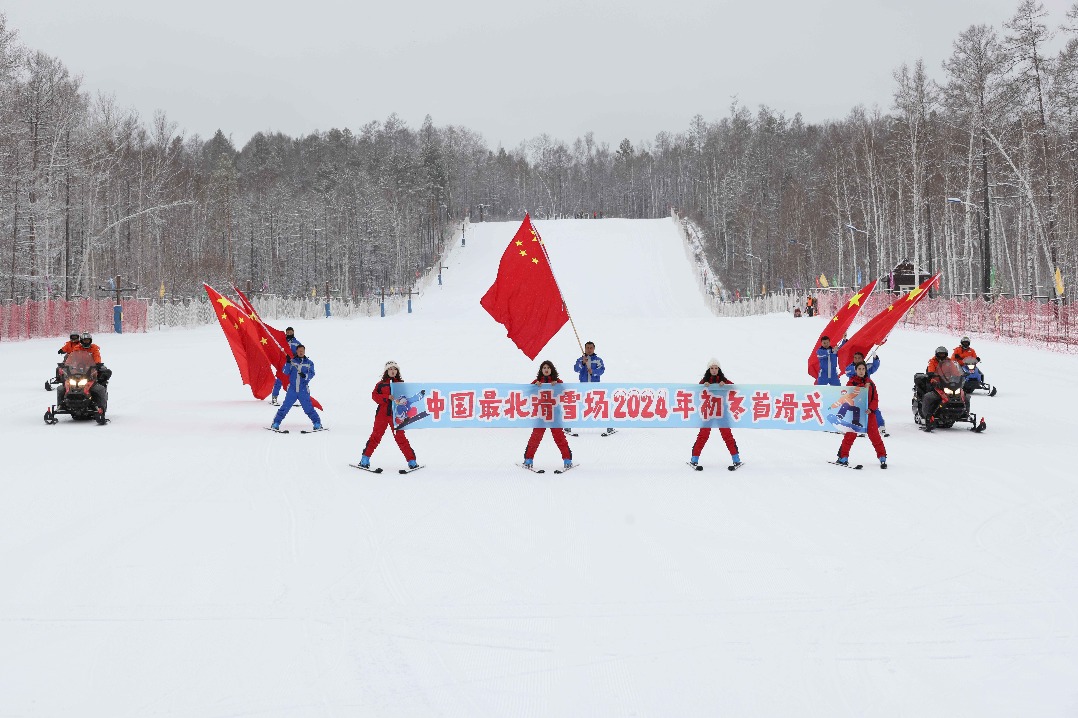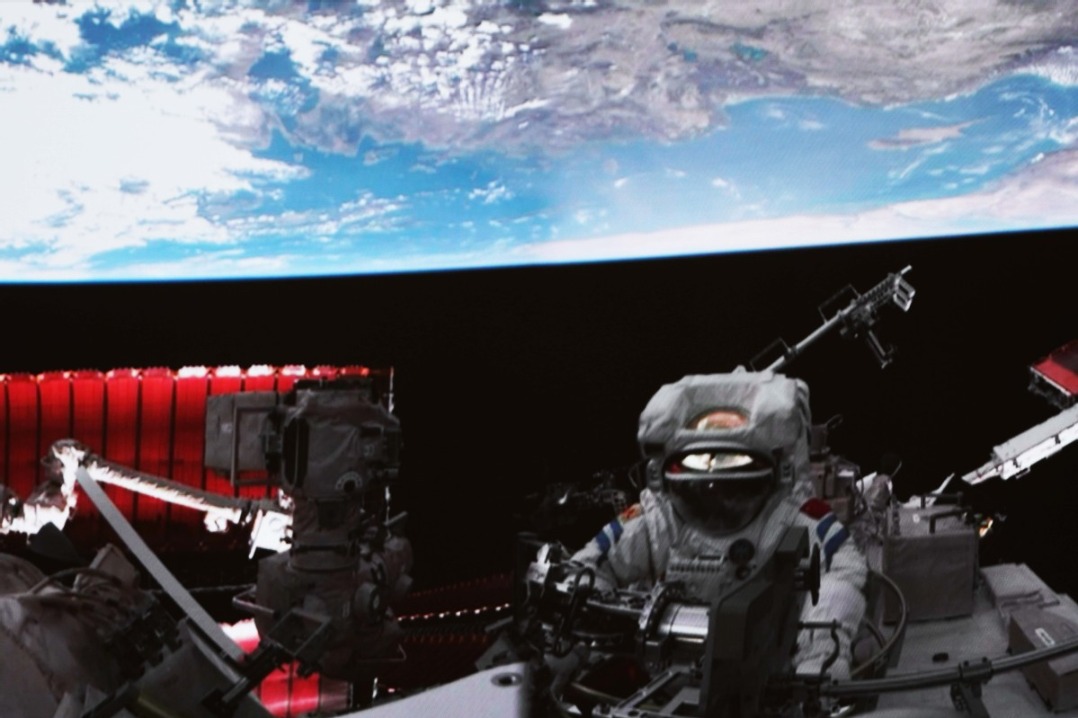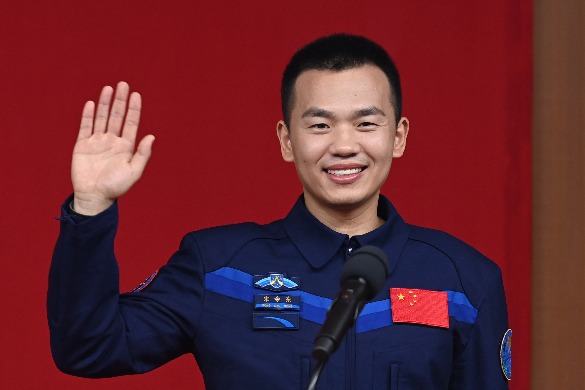US professor relates great changes in China since 1978
Thomas Scovel makes donation to university on behalf of former student


Thomas Scovel, one of the first professors from the United States to teach at a Chinese university, returned to his old campus recently to make a donation on behalf of one of his former students.
Scovel was actually born in Jining, Shandong province, in 1939 as the son of a doctor from a US missionary and later returned to the US. He came back to China in 1979 to take up a teaching position at Tianjin Foreign Studies University.
The former professor, who has written a book about the pivotal changes that have taken place in China since reform and opening-up was introduced in 1978, took to the stage at the university's 60th anniversary celebration on Sept 28 to present a cheque for 2.2 million yuan ($300,000) to the university on behalf of his former student Yang Bin.
The donation will go toward a scholarship and awards for teachers, and adds to an earlier 2 million yuan donated by Yang in 2014.
The cash was paid to students as awards for exhibiting exceptional leadership, athletic prowess and a benevolent spirit.
For the teaching awards, they have been named after Scovel and his wife Janene who also taught at the university.
Zhou Honglei, the university's Party chief, acknowledged Scovel as "one of the first foreign professors to journey from the US to China".
Scovel penned a message for the university's 60th anniversary celebration, reflecting on the late 1970s when China began its journey of reform and opening-up.
Since 1979, Scovel had only returned to the university once in 2014 for its 50th anniversary.
He reminisced about his experiences in China, recounting his journey from the University of Pittsburgh to Tianjin, highlighting his wife Janene's teaching endeavors as she accumulated experiences and collected data for her PhD thesis on teaching English in China.
In one of his writings, he recalled encountering a political slogan promoting the then popular "four modernizations" on a billboard, which read, "Catch Japan by the Year 2000!" He humorously remarked to a Chinese colleague about China's progress relative to Japan, a comment that foreshadowed China's subsequent economic ascendancy over Japan in terms of trade with the US.
"Little did I know that not long after the new millennium, China would far surpass Japan in terms of exports to the US," he said.
Scovel noted the stark changes in China since 1978. "Forty years ago, it was almost unimaginable that, in today's China, millions would have their own place of residence, have a car and that phones would be more common than fountain pens," he said.
His insights into Chinese philosophy resonated with the teachers and students of the university, underscoring the harmonious interplay of change and stability in modern China and the nation's ongoing evolution.
"For the most part, steady and invariable, and thus the yin of change is balanced by the yang of stability, and only when both are recognized as equal and complementary forces can modern China be adequately understood and appreciated," he said.
yangcheng@chinadaily.com.cn
- US professor relates great changes in China since 1978
- Country set to advance sci-tech popularization
- Pet economy purrs ahead as cat, pooch cafes spread
- Shenzhou XVIII crew return with space project samples
- Shenzhou XVIII mission returns samples for extraterrestrial habitation research
- China's legislature pushes for stronger oversight of local environmental, debt reports





































